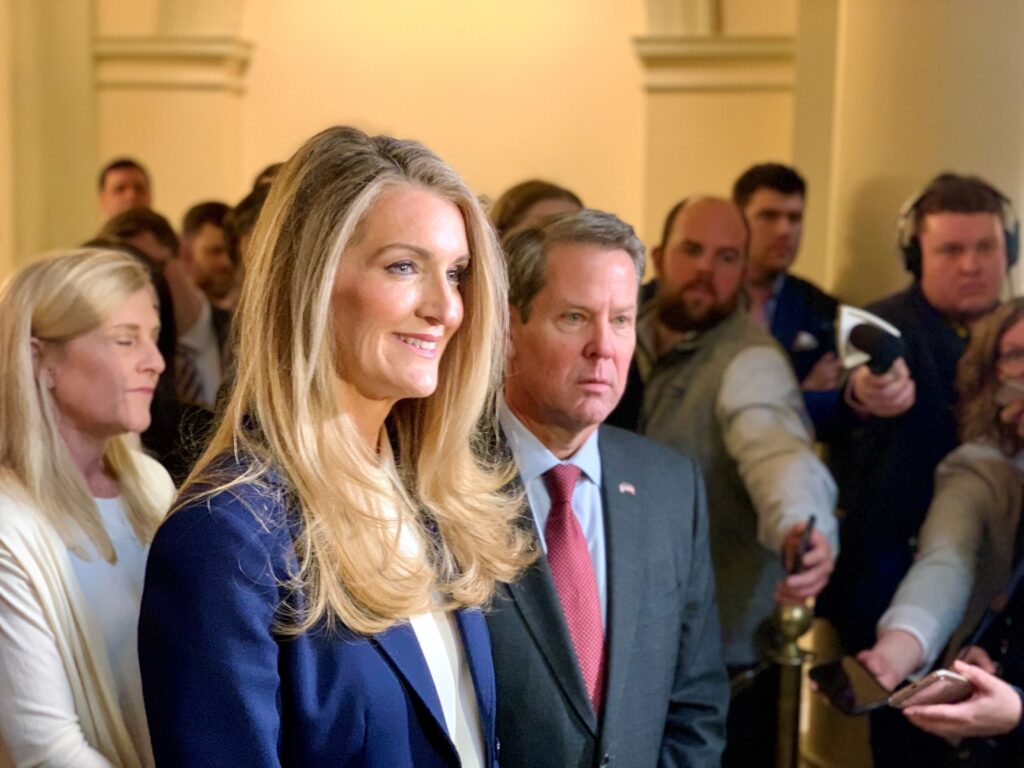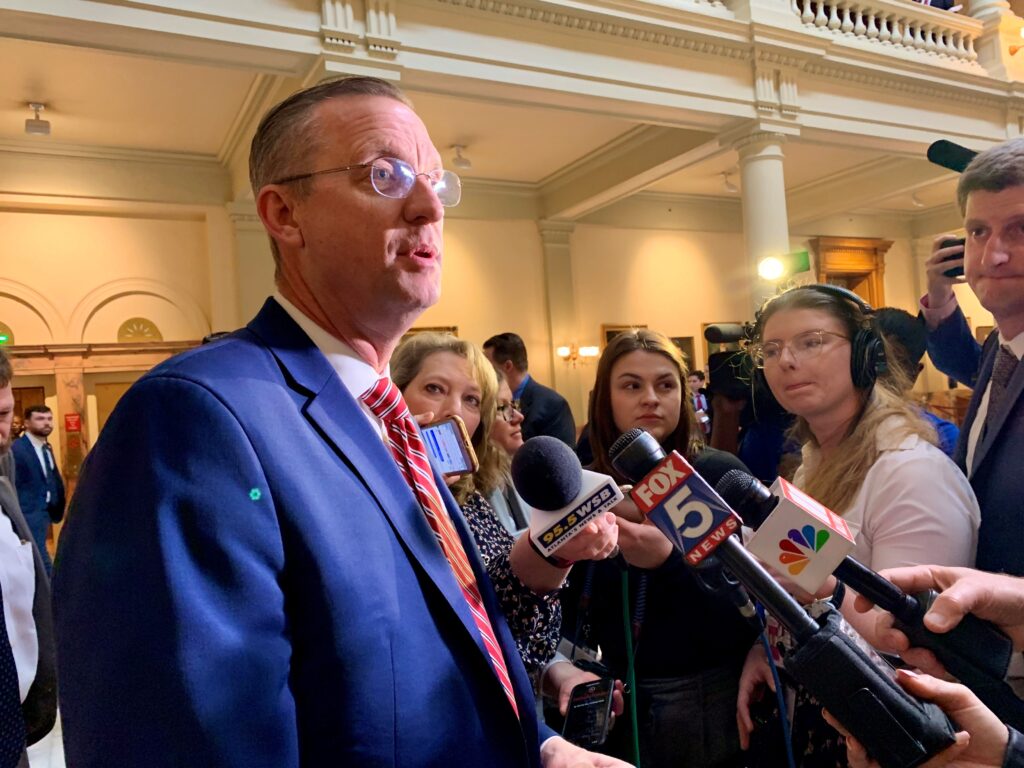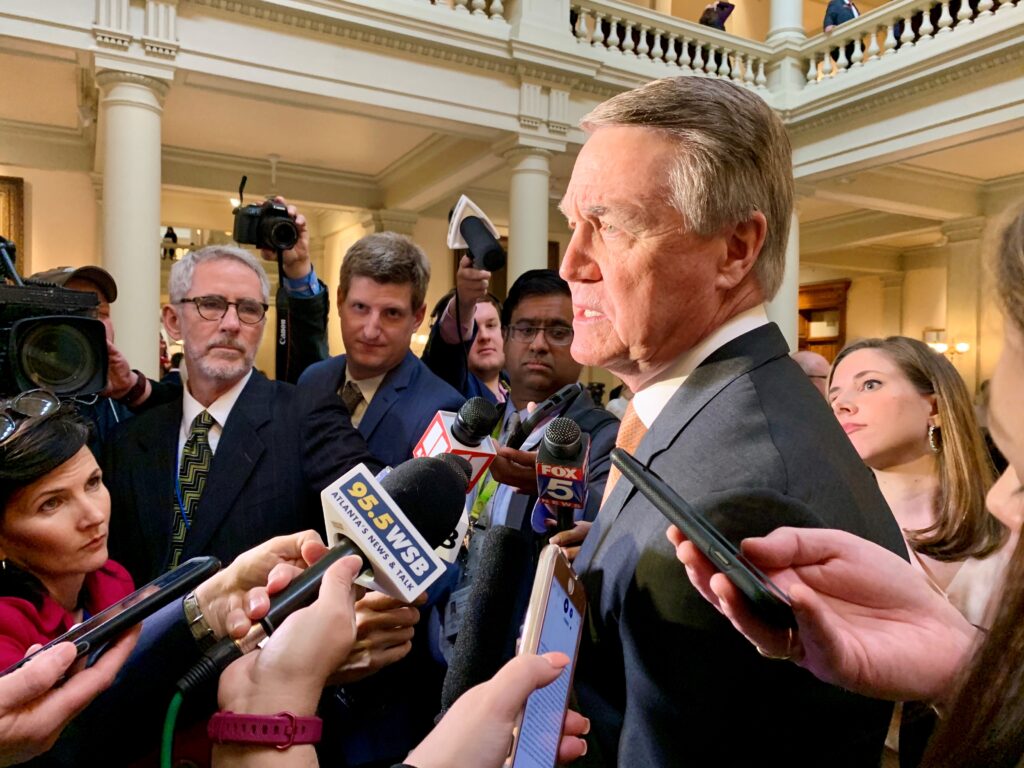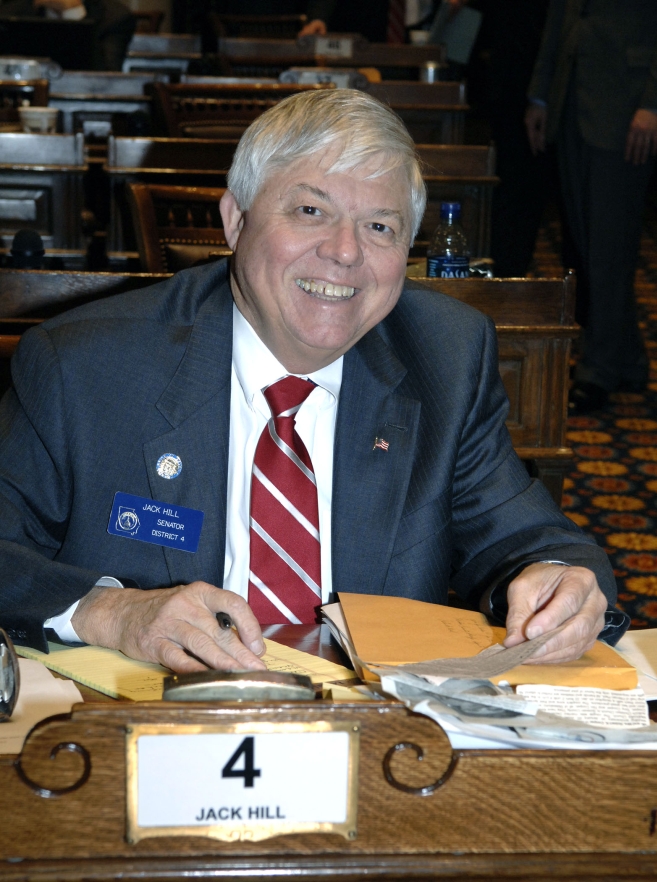2020 election qualifying starts in Georgia amid tense U.S. Senate race

ATLANTA – Georgia lawmakers began qualifying Monday for a spate of races in the 2020 elections, both for state and federal offices.
The 2020 elections see every seat in the Georgia House of Representative and Senate up for grabs as well as all 14 U.S. House seats and the state’s two U.S. Senate seats.
Candidates and incumbents for dozens of state and federal seats had signed up within hours of the qualifying period’s commencement.
Notably, all three Republican candidates for Georgia’s two U.S. Senate seats made appearances at the Georgia Capitol building shortly after qualifying, which kicked off at 9 a.m. The qualifying period runs until Friday at noon.
Each angled for recognition as an “outsider” candidate or incumbent with a strong affinity for President Donald Trump’s policies.
Back-to-back showings at the Capitol of U.S. Rep. Doug Collins and U.S. Sen. Kelly Loeffler, who are competing with each other to fill the remainder of retired U.S. Sen. Johnny Isakson’s term, underscored the tense party in-fighting in Georgia this election season.

Standing feet from where Loeffler was scheduled to speak, Collins railed against the attack ads by his opponents’ allies depicting him as an entrenched Washington politician.
He slammed the billionaire Atlantan who has amassed $10.5 million for her campaign so far as out of touch with Georgia voters, particularly the state’s farmers. Loeffler is seeking to woo voters with her background growing up on an Illinois farm.
“Today begins a new day,” Collins said. “I say bring it on. You can spend your money, but we’re going to have a debate.”
Loeffler then stepped out from a side room of the Capitol’s North Wing alongside several high-profile supporters including Gov. Brian Kemp, who appointed her in December to hold Isakson’s seat until the November election.
Despite the recent campaign ads, Loeffler pledged to run a Georgia-centric campaign aimed at uniting the state’s Republican party against Democratic challengers.
“The state should not be at risk,” Loeffler said. “I will not let it be at risk.”
Georgia Democrats eying an opening in the race for Isakson’s old seat highlighted the intra-party conflict on Monday.
Alex Floyd, a spokesman for the Democratic Party of Georgia, called the jousting between Loeffler and Collins “a no-win scenario” for state Republicans that has resulted “in a multimillion-dollar slugfest.”
“While Republicans fight over who can appeal most to a narrow base, Georgia Democrats are ready to focus on the issues that matter to Georgia families,” Floyd said.

Democratic contenders, especially presidential candidate U.S. Sen. Bernie Sanders, loomed large in the speech from U.S. Sen. David Perdue, who is seeking re-election to Georgia’s other U.S. Senate seat. The GOP incumbent called for beating back support for policies splitting the national Democratic party like Sanders’ Medicaid-For-All plan.
“What we have to do is to make sure once and for all in the state of Georgia that the road to socialism will never run through Georgia,” Perdue said.
The two U.S. Senate seats have each drawn a trio of Democratic challengers, including pastor Raphael Warnock. Warnock, Loeffler, Collins and others will compete for Isakson’s old seat in a free-for-all special election scheduled the same day as the Nov. 3 general election.
Two Democrats challenging Perdue qualified on Monday: former Columbus Mayor Teresa Tomlinson and James Knox of Evans, a U.S. Air Force retiree.
U.S. Rep. John Lewis, D-Atlanta, who was recently diagnosed with stage 4 pancreatic cancer, was also on hand at the Capitol for qualifying after rallying in Selma, Ala., on Sunday. As a young civil rights leader, Lewis was severely beaten during a 1965 march across the Edmund Pettus Bridge at Selma.
Besides Lewis, other incumbent Georgia congressmen who signed up Monday to seek re-election included U.S. Reps. Buddy Carter, R-Savannah; Sanford Bishop, D-Albany; Hank Johnson, D-Stone Mountain; Lucy McBath, D-Roswell; Jody Hice, R-Greensboro; Barry Loudermilk, R-Cassville and David Scott, D-Atlanta.
Several vacant House seats drew a good deal of attention on the first day of qualifying.
Republican state Sen. Renee Unterman, R-Buford, and Republican businessman Mark Gonsalves signed up for the GOP primary for the 7th Congressional District seat being vacated by Rep. Mark Woodall, R-Lawrenceville. Democrat Carolyn Bourdeaux, who came close to beating Woodall in 2018, also qualified on Monday.
In the 9th District, which Collins is vacating to run for the Senate, Republican state Reps. Mark Gurtler, R-Tiger, and Kevin Tanner, R-Dawsonville, tossed their hats into the Republican primary race. Three other GOP candidates – retiree Maria Strickland, crane operator Michael Boggus and attorney Ethan Underwood – also entered the GOP primary contest in the heavily Republican district.
And in the 14th Congressional District, where Rep. Tom Graves, R-Ranger, is not running for re-election, four Republicans qualified on Monday. The list of hopefuls includes businessman Kevin Cooke, neurosurgeon John Cowan, attorney Clayton Fuller and businesswoman Marjorie Taylor Greene.
Bureau Chief Dave Williams contributed to this story.
